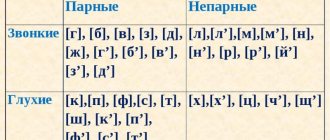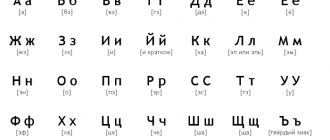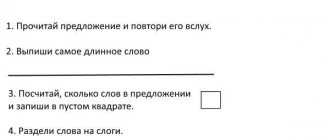"How is your throat?"
Wait...what does this have to do with the French language?
This is not a typical question that is asked unless someone has a cold. But when it comes to learning French, you may suddenly find yourself with a sore throat.
"Why?" - you ask.
Well, the French language is known for having some sounds that are difficult to pronounce.
These include sounds that are actually pronounced through the nose and other vowel sounds (unique to French), such as the u sound found in cru.
But what sound in particular causes a peculiar scratching sensation in your throat?
Of course it's the French "R" sound!
This is perhaps the most difficult pronunciation method for French learners.
This sound is unique to French—it differs from the English rhotic "R" and trill "R" (also known as the "rolled R") found in other European languages such as Spanish, Italian and Russian.
In addition to a good French pronunciation guide, the best way to master the French “R” sound is to go to France and practice there. But before you book a trip to France, let me share some fantastic news - the best place to find French pronunciation tools is the Internet!
Use Forvo to hear the pronunciation of any French word
The key to sounding the French letter "R" correctly is hearing it clearly and having an authentic sound recorded by native speakers.
For this, I recommend the Forvo Audio Dictionary. Simply search for a French word containing the letter "R" to hear its pronunciation. This is especially useful when you're trying to hear how to pronounce the letter "R" in French in combination with other consonants, such as in the word Crime.
Practice with online exercises from Simple-French.com
Exercises to practice the French letter “R” are also required! Simple-French.com offers quite a few audio recordings as well as exercises you can practice on your own.
The exercises involve saying several different sounds and words using the letter "R". Gradually you get closer and closer to being able to pronounce it more accurately. To test your pronunciation, each exercise also includes audio.
If you're serious about improving your French pronunciation, make it a goal to practice once a day until it becomes second nature. Even if you get it right the first time, repetition is what will help you really get the hang of it.
Watch a YouTube video about the letter “R” in French
YouTube is also a great way to practice the "R" sound in French. Language City offers a short video explanation of the sound along with practice exercises, and the University of Michigan includes a video on the "R" sound in its series on French pronunciation.
Have a glass of water ready! All those French "R" exercises can make your throat dry out.
Approximation method (approximate method)
Do you speak another language? You might get lucky.
Using the approximation method, you can "borrow" the French letter "R" from other languages that have similar sounds!
This is because the French "R" is very similar to the glottal sound (made by the throat) in other languages. However, keep in mind that the French "R" sound is not exactly the same as these sounds, it's just an approximation.
For example, the French "R" sounds the same as the letter "g" in languages such as Dutch and Afrikaans. However, in the case of French, the "R" sound is made a little higher in the throat, so try to raise it up to the uvula.
The French "R" sound can also be found in Arabic kh and is similar to the German ch found in the middle of words such as machen (to do/make).
Even English has a sound very close to the French "R"! This is similar to the sound at the end of the Scottish name Loch, as in Lochness Monster.
By using your knowledge of another language as a basis for the French "R", you make some pretty accurate substitutions for that tricky sound.
In addition, using these sounds as a basis, you can fine-tune your pronunciation even more precisely.
French alphabet
We should start with the alphabet. Let's listen to the pronunciation of French letters and repeat them after the announcer:
So, in French there are 26 letters, in addition to which there are also spelling signs:
“ – trema means that the vowel over which it stands must be pronounced separately from the previous one: maïs .
` – accent grave denotes an open syllable: bière .
? – accent aigu denotes a closed syllable: école .
^ – accent circonflexe indicates the length of the sound: la fête .
c–c cedille denotes a soft "c" sound: le garçon .
Method "K"
Whether you speak another language or not, you'll eventually want to step out of your comfort zone and start pronouncing the letter "R" exactly as it is in French.
And surprisingly, there's actually a pretty simple way to do this - and it starts with the "K" sound in English!
The process is simple. First, say the letter “K” as in “kick.” Say the word a couple of times and then slow down your pronunciation.
As you pronounce the word slowly, pay attention to the place in your throat where the two “K” sounds are made. This is where the French "R" sound is produced.
What then is the difference between the sound "K" and the sound "R"?
Well, the “K” sound is created by inhaling: when you make this sound, there is only a momentary constriction of the throat.
For the French "R" sound, we need to maintain the "K" sound for a longer period of time.
Instead of briefly squeezing, hold the “K” sound while releasing air slowly and allowing the back of your mouth to vibrate. If you can't get your throat to vibrate, tense the muscles in that area while slowly releasing air.
When you vibrate this place, you make the sound of the French "R"!
Vowel combinations
- Pronounce “ai” [e] : m ai re [m er ] - mayor.
- “eu”, “œu” are pronounced like the sound [ё] in the Russian word dog: c œu r [k ё r] - heart.
- “au”, “eau” are identical in pronunciation to Russian [o] : c au chemar [k o sh'mar] - nightmare, bur eau [buro ] - bureau.
- “ou” is pronounced like Russian [у] : tab ou ret [tab u re] - stool.
- “oi” is read as [ýa] (the first sound is more like English [w]): cr oi ssant [cr ýa ssan ] - croissant, pourqu oi [purk ýa ] - why.
- “y” in combination with other vowels has a peculiarity in pronunciation. To remember better, you can mentally imagine double i - voyage can be imagined as vo i + i age = [vo a + y already] - trip.
Discreet Method
If the approach and "K" methods don't work, there is still hope!
However, be careful: this method is a bit rough!
You may have unknowingly pronounced the French letter “R” several times in your life.
Usually, when you have a cold, you need to clear the back of your throat of mucus. We often do this by churning up the mucus (inhaling it from the back of the throat) and then spitting it out.
No matter how disgusting it may sound, it is in this horking that the French “R” sound is born.
But wait! No need to spit everywhere!
Aim for a softer sound than the hork.
You should try to achieve a more consistent vibration rather than a harsh crack.
If this is too rough for you, you can use snoring as the basis for the sound.
Nasal vowels
- “an”, “am”, “en”, “em” are read as [añ] , where ñ is pronounced through the nose: pl an [pl añ ] - plan.
- “on”, “om” are pronounced like [оñ] : mais on [mεz oñ ] - house.
- "in", "im", "um", "un", "ain", "aim", "ein", "yn", "ym", etc. pronounced as something between [añ] and [eñ] : mat in [mat əñ ] - morning, écriv ain [εcriv əñ ] - writer, f aim [f əñ ] - hunger.
How to pronounce the letter R in French dialects
You've now learned how to pronounce "R" in standard French, but this sound can be a real chameleon!
In fact, the French "R" sound is not pronounced the same way in all dialects or accents of the French language.
The pronunciation of the "R" sound in this article is what is commonly heard in the Parisian dialect of French, which is used in standard French. Standard French is what is heard in the media and in most major cities. It is also the most widely spoken dialect of the French language.
In Northern France, however, the "R" sound is pronounced much lower in the throat, almost where the English "h" sound or the Spanish "j" sound is pronounced.
For older people in rural France, the letter "R" is pronounced like "R" in Spanish or Italian.
But it also takes on more of a jitteriness in other French dialects (think of the Italian or Spanish "R" sound in the throat).
Why is this good news for you?
Well, if you can't pronounce the French "R" as they say in standard French, you can always use a regional accent!
French consonants
- Voiced consonants are always pronounced clearly and are not deafened at the end of the word: parade , téléphone , Arabe .
- Under stress and before the consonants r , s , z , v , j , g, vowel sounds acquire length: base , bagage .
- Double consonants are read as one: personne , adresse , professeur , classe , tasse .
- Letters and letter combinations t , d , s , x , z , g , p , es , ts , ps , ds (as well as r after e , except for some adjectives and nouns, for example: hiver , cher ) at the end of the word are not read: appétit , prix , Bernard , nez , aller . Exception: dix , six .
- The letter s between vowels gives the sound [z]: Lise , Basile , surprise . In other cases it is read as [s].
- The letter x between vowels gives the sound [gz]: examen , exercice , exotique .
- The letter x gives the sound [ks] in the words: texte , taxi , expédition , extra .
- The letter c retains its sound [s] before i , e , y : Alice , Lucie , ici , farce , merci , trace .
- In other cases, the letter c gives the sound [k]: caravane , casino , café . After nasal vowels c at the end of the word it is not readable: banc .
- The letter g has the sound [zh] before i , e , y : girafe , gelée , agiotage .
- In other cases, the letter g gives the sound - [g]: bagage , grotte , wagon , tango , golfe .
- The combination gn gives the sound [н]: ligne .
- The letter h is never read: hobby .
- The letter y between the vowels should be, as it were, decomposed into two letters i and read in accordance with the other rules: loyal ==> loi – ial = [lwa-jal].
- The letter l is always read softly: London .
- ch gives the sound (sh): chapeau .
- ph gives the sound [f]: photo
- The letter t gives the sound [s] before i + vowel: alimentation , except amitié , pitié . If there is a letter s t , then t is read as [t]: question .
- qu reads [k]: quoi .
We looked at the basic rules for pronunciation and reading consonants in French. Practice your pronunciation by listening to the words above. I also suggest watching the training video and practicing.
Rules for reading numerals
Let's look at the rules for reading different numerals in sections.
Cinq (5)
It has peculiarities in the pronunciation of the final letter depending on which word comes next.
| Place | Rule | Example |
| At the end of the phrase | The last letter is pronounced | Il y en a cinq. [sɛ̃k] |
| Before a word whose first letter is a vowel or h is silent | cinq euros [sɛ̃kœro] | |
| Before a word whose first letter is a consonant or an aspirated h | The last letter may or may not be pronounced (both options). | cinq cents [sɛ̃sɑ̃] / [sɛ̃ksɑ̃] cinq livres [sɛ̃livr] / [sɛ̃klivr] |
Six and dix (6 and 10)
| Place | Rule | Example |
| At the end of a sentence | The last letter is read as [s] | Il y en a dix. [dis] |
| Before a word whose first letter is a vowel or h is silent | The numeral is associated with the word that follows it, and its last letter is read as [z]. | six euros [sizœro] |
| Before a word whose first letter is a consonant or an aspirated h | The last letter is not pronounced | six cents [sisɑ̃] dix personnes [dipɛrson] |
| Dates | If the month begins with a consonant, then the last letter of the numeral can either be left unread or pronounced [s]. If the month begins with a vowel, then the last letter of the numeral must be read as [s] or [z] | le 10 juin [lǝdiƷʮɛ̃] / [lǝdisƷʮɛ̃] le 26 avril [lǝvɛ̃sizavril] / [lǝvɛ̃sisavril] |
| Number designation | The last letter in this case is read as [s] | compter jusqu'à dix [dis] |
Sept and neuf (7 and 9)
The last consonant in these numerals is read in any case. In some situations, the last letter of neuf will be read as [v], namely after the words: ans - years, autres - others, heures - hours, hommes - man or men. Example: Il a neuf ans. [nœvɑ̃] - He is nine years old.
Huit (8)
There is no loss of vowels before this numeral, and binding occurs only as part of a complex numeral: dix-huit ans [dizʮitɑ̃]. Exceptions: 88 - quatre-vingt-huit [katrǝvɛ̃ʮit] and 108 - cent huit [sɑ̃ʮit].
| Place | Rule | Example |
| At the end of a sentence | The last letter is pronounced | Il y en a huit. [ʮit] |
| Before a word whose first letter is a vowel or h is silent | The numeral is associated with this word. In this case, the last letter is read as [t]. | huit euros [ʮitœro] |
| Before a word whose first letter is a consonant or an aspirated h | The last letter is unreadable | huit cents [ʮisɑ̃] |
| Dates | If the month begins with a consonant, then the last letter of the numeral can either be left unread or pronounced [t]. If the month begins with a vowel, then the last letter of the numeral must be read as [t] | le 8 juin [lǝʮiƷʮɛ̃] / [lǝʮitƷʮɛ̃] le 28 avril [lǝvɛ̃ʮitavril] |
| Number designation | The last letter is read as [t] (it can be omitted before the number indicating percentage). | Il a eu 88% à son dernier examen. [katrǝvɛ̃ʮit] / [katrǝvɛ̃ʮi] |
Vingt (20)
When pronouncing this numeral, you should pay attention to which word comes next. If it is a noun whose first letter is a vowel or h is silent, then the binding occurs, t is pronounced: vingt ans [vɛ̃tɑ̃]. Also t is read in numerals from 21 to 29: vingt-neuf [vɛ̃tnœf]. But the last letter is read as [n] in numerals 22 and 23: vingt-deux [vɛ̃ndø], vingt-trois [vɛ̃ntrwa].
Quatre-vingts and quatre-vingt-dix (80 and 90)
Linking also occurs here if after 80 there is a noun with a vowel or silent h, s at the end of 80 is read as [z]: quatre-vingts ans [katrǝvɛ̃zɑ̃]. In all numerals from 81 to 99, the last t is not pronounced: quatre-vingt-un [katrǝvɛ̃œ̃], quatre-vingt-onze [katrǝvɛ̃ɔ̃z].
21, 31, 41, 51, 61, 71
To make speech more melodious, the word denoting ten is associated with the conjunction “and” in the middle: vingt-et-un [vɛ̃teœ̃], trente-et-un [trɑ̃teœ̃].
Cent (100)
This numeral will also be associated with the following word, provided that its first letter is a vowel or h is silent: сent ans [sɑ̃tɑ̃]. The only exception is 101, this numeral will be read separately: cent un [sɑ̃œ̃].
In the hundreds from 200 to 900, the ending -s appears (if there is not another numeral after the hundred), and it is this letter that will participate in the linking: deux cents ans [døsɑ̃zɑ̃].
Read about numerals in French.
Some tips to improve your pronunciation
When starting to learn a foreign language, many are faced with unusual phonetic rules. Often, the first failures in mastering pronunciation make you disappointed and give up. To cope with this problem, you need to work with your motivation.
- Feel free to say all the exercises out loud. The more you practice, the better the result will be.
- Understanding grammatical rules directly depends on mastering phonetics.
- It is much easier to increase your vocabulary if you pay attention to correct pronunciation.
- In order to reduce the accent as much as possible and better master pronunciation, you need to study it step by step, namely: Mastering articulation. Try to carefully work out the position of your lips and tongue when pronouncing. For a more effective result, you can use a pocket mirror, then mistakes will be more noticeable.
- Automation. It is important to practice your pronunciation as much as possible. The more actively you speak, the faster the process will become automatic and you will no longer have to think about how to pronounce this or that word.
- Rhythmic pattern of phrase and text. When reading or listening to a text, you need to notice intonation, length of sounds, and stress. These nuances make speech melodic.
To better master pronunciation, it is useful to learn tongue twisters and speak them as clearly as possible. When learning a language, it is necessary to listen to audio recordings of native speakers. It is very useful to use a voice recorder into which you can speak the text and then listen to it. This way you will immediately notice your own mistakes. And the most enjoyable way to perfect your pronunciation is to hum French songs.










